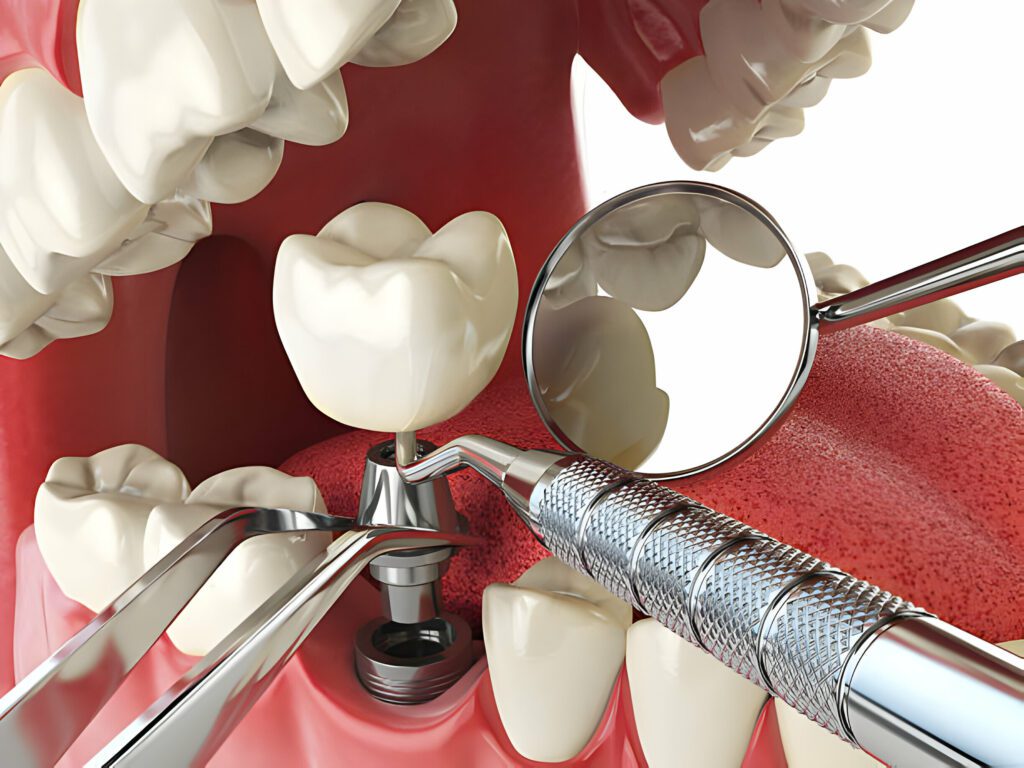Dental implants are considered the best solution for tooth replacement. They offer a long-lasting and reliable way to replace missing teeth. Many people in the UK ask if these implants will ever be available on the NHS. Let’s dive into the current situation. We’ll see why Dental implants aren’t on the NHS, the eligibility rules, and other options.
Understanding NHS Coverage for Dental Implants
The NHS offers dental care based on clinical necessity. It prioritizes essential oral health treatments. It focuses on the cheapest solutions. Dental implants are viewed as a costly option for replacing teeth and are generally not considered essential. Therefore, they aren’t typically funded by the NHS except in specific cases.
When Will the NHS Cover Dental Implants?
The NHS has strict criteria for providing dental implants. They are only available when there’s a clear medical need, such as:
- Facial trauma: They might qualify for NHS-funded implants. This is if they have had serious injuries. These injuries resulted in tooth loss or facial damage.
- Cancer and Medical Conditions: Patients may be eligible if they lost teeth due to conditions like oral cancer or other medical issues.
- Genetic Conditions: People are born with conditions that lead to missing or malformed teeth, like a cleft palate. They could qualify for NHS implants.
- Difficulty Wearing Dentures: Some can’t wear them for medical reasons. They may be eligible for implants, if there’s a clear medical reason.
Eligibility Criteria
To qualify for NHS-funded dental implants, patients must meet strict criteria, including:
- Being non-smokers.
- Maintaining good oral hygiene with no untreated dental issues.
- Having no underlying health conditions, such as uncontrolled diabetes.
- Showing evidence of good overall health and life expectancy.
Even those who meet these criteria might face a long waiting list, as NHS resources are limited.
NHS Alternatives and Private Treatment
Most patients who need dental implants will need to pursue private treatment. Alternatives like dentures and bridges are commonly provided by the NHS but may not offer the same benefits as implants. Dentures and bridges often need frequent replacements and may not fully restore the ability to chew. The long-term costs can add up quickly.
However, many private clinics offer payment plans. The plans make dental implants more affordable. Private treatment can be costly at first. But, the long-term benefits and fewer replacements can make it worth it.
Will the NHS Ever Fund Dental Implants?
It’s uncertain if the NHS will ever fully fund dental implants for a wider range of patients. Budget constraints and the need to prioritize cost-effective treatments make it unlikely. Dental implants won’t become more widely available through the NHS.
However, new evidence shows that dental implants have long-term benefits. They could be cost-effective compared to Dentures and bridges. Advocacy for broader NHS funding of dental implants may increase, but no immediate changes are expected.
Conclusion
For now, dental implants are only available on the NHS under strict circumstances with clear medical need. Most patients will need to consider private options, with payment plans available to ease the cost. Dental implants are unlikely to become widely available on the NHS soon. But, ongoing advances and research may affect future funding decisions.
Frequently Asked Question
Can I get dental implants on the NHS for free?
Typically, dental implants aren’t free on the NHS. They are usually only covered in cases of significant medical need, such as facial trauma or certain genetic conditions.
Are dentures a good alternative to dental implants?
Dentures can be cheaper. But, they need more maintenance and replacements over time. Implants are more durable.
Who decides if I’m eligible for NHS-funded dental implants?
Dental and medical professionals assess eligibility for NHS-funded implants. They consider specific guidelines and your medical history.
How can I lower the cost of private dental implants?
Private clinics often offer payment plans and financing options. These options make dental implants more affordable over time.
What are the main benefits of dental implants?
Dental implants last a long time and are secure. They are a solution for missing teeth. They improve oral health, function, and appearance. They do this better than other dental options.





